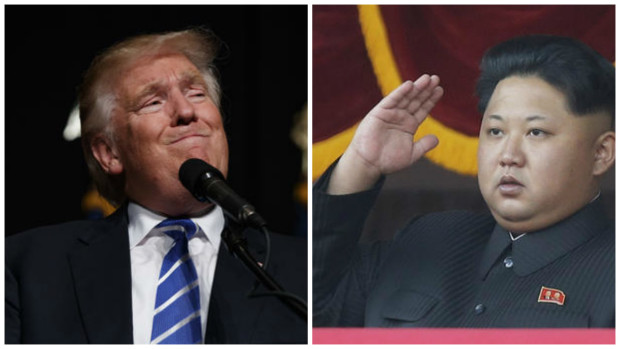BEIRUT, Lebanon—Kim Jong-un might seem an unlikely player in the global jockeying to get on the new US president’s good side, given the North Korean leader’s implied threats as recently as New Year’s Day to launch nuclear missiles at the United States.
But Kim apparently sees in President Donald Trump “a good opportunity for him to open a kind of compromise with the new American administration,” North Korea’s highest-ranking defector, Thae Yong-ho, said in an interview with CNN last week.
The bromance between President Vladimir V. Putin of Russia and Trump is the most prominent example of a trend that has swept the world, instilling new hope for a strongman-friendly America in countries like the Philippines, Turkey or Egypt, and among nationalists in many other places who hope to follow in Trump’s footsteps and gain political power.
Many such strongmen appear to see a Trump presidency as an opportunity to engage with a like-minded leader who has stated nationalist aims. Others may hope for respite from criticism over their human rights records or authoritarian tendencies.
New era of nationalism
Some, like Kim and Putin, might see an opportunity to further their national aims in a new geopolitical order.
The historian Timothy Garton Ash, writing in The Guardian, called the Trump presidency “a new era of nationalism” in which “the nationalists are giving one another the Trumpian thumbs-up across the seas.”
The Philippines’ President Duterte, who called then US President Barack Obama a “son of a whore” for the Obama administration’s criticism of an officially sanctioned assassination campaign against drug users and dealers in the Philippines, was quick to congratulate Trump on his election victory.
The Philippine leader said last week that Trump had sent him a message of support.
Mr. Duterte, who has threatened to break off relations with the United States, a longtime ally, and turn to China instead, made the announcement during an appearance at the Miss Universe pageant in Manila. (Like Trump, who owned the Miss Universe franchise until 2015, Mr. Duterte has long reveled in appearing in public with beauty queens.)
Mr. Duterte appeared unfazed by Trump’s order last week blocking refugees from the United States and curtailing immigration from some mainly Muslim countries, saying on Sunday that “I will not lift a finger” to help Filipinos facing deportation from the United States, according to the Philippine Daily Inquirer.
They’ve changed their tune
Even those who were contemptuous of Trump when he was a reality show star and considered a long shot to win the US presidency have changed their tune.
In June last year, after Trump said he would bar Muslims from entering the United States, President Recep Tayyip Erdogan of Turkey demanded that Trump’s name be removed from Trump Towers Istanbul.
After Trump’s election, Turkey’s strongman shifted his stance. “I believe we will reach a consensus with Mr. Trump, particularly on regional issues,” Erdogan said this month during a meeting with Turkish diplomats.
Some cracks appeared to show after Trump’s immigration order last Friday: Erdogan called the move “frankly disturbing.” But he said he would still meet with Trump at an unspecified date and raise the issue then.
And the name of Trump Towers remains unchanged.
Egypt, Kazakhstan
In Egypt, President Abdel Fattah el-Sisi, who has smarted from US criticism about the country’s human rights record and about the military coup that brought him to power, appears to be welcoming Trump’s leadership.
Last December, after a phone call from Trump, Sisi agreed to delay a vote in the UN Security Council on Israeli settlements.
Sisi’s silence in the face of Trump’s order on refugees was conspicuous, despite widespread sentiment in the region that it was anti-Muslim.
In Kazakhstan, the country’s “president for life,” Nursultan A. Nazarbayev, whose poor human rights record is well documented, said Trump had called him last December and complimented him on the “miracle” he had wrought in his country over its 25 years of independence.
Trump was apparently not referring to Nazarbayev’s 2015 reelection, which the Kazakh leader won with 97.7 percent of the vote.
Trump has also been lauded by nationalists in Europe, where his anti-immigration messages resonate on a continent that has been swamped with refugees from wars in countries like Syria and with economic migrants.
Hungary’s prime minister, Viktor Orban, has welcomed Trump’s victory, as have far-right leaders such as Marine Le Pen in France.
